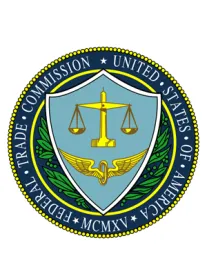Earlier this month, the Second Circuit overturned a decision by the Federal Trade Commission (the “FTC”) holding 1-800-Contacts violated antitrust law by entering into trademark settlement and related agreements that restricted bidding on auctions held by companies that operate search engines. 1-800 Contacts v. Federal Trade Commission. Although the Second Circuit recognized that trademark settlement agreements are “not immune from antitrust scrutiny,” it disagreed with the FTC’s analysis of the alleged restraints set forth in the agreements.
The agreements in question were the product of settlement discussions between 1-800-Contacts and its competitors regarding alleged trademark infringement. Through the agreements, the parties agreed not to bid on each other’s trademarks, URLs, or variations of their trademarks as keywords for online search advertising. They also agreed not to bid on each other’s brand names in keyword auctions and to refrain from employing negative keywords to prevent each other’s ads from appearing in response to a search for the trademarked term (even when the advertising party did not use the trademark as a keyword). As a result of these agreements, when searching for 1-800-Contacts online, consumers would be unlikely to receive comparative information from the company’s competitors.
After examining “judicial precedent, economic theory, empirical studies of restrictions on price advertising, and the importance of advertising in the online contact lens market,” the FTC held that 1-800-Contacts’ behavior was inherently suspect. It determined that 1-800-Contacts’ advertising restrictions were likely to have anticompetitive effects especially because the challenged agreements affected sellers responsible for 79% of all online sales of contact lenses and thus “neuter[ed] an especially effective means of competition.” The FTC also held that neither direct evidence of harm nor proof of market power was needed to show the anticompetitive effect of the restraint; in the FTC’s view, a “likely tendency to suppress competition” posed by the challenged conduct makes it “inherently suspect.”
Based on this reasoning, the FTC held that 1-800-Contacts’ conduct harmed consumers. The behavior reduced truthful advertising in the market, and resulted in consumers no longer receiving information from companies selling the same contacts at lower prices, which would cause them to pay higher prices for the same product. Moreover, the FTC held that the anticompetitive behavior harmed search engines by reducing the number of bidders in keyword auctions and thus the prices paid by auction winners, which was a form of bid rigging. The FTC further held that trademark protection, a procompetitive goal, was not enough to overcome the anticompetitive nature of the agreements because competing advertisements were restricted even where there was no possible use of the trademark, less anticompetitive terms in the agreements could have protected the trademarks, and the advertisements were not confusing to consumers.
The Second Circuit did not agree with FTC’s assessment. It held that the FTC’s analysis of the alleged restraints on competition under the “inherently suspect” framework was improper. Citing Supreme Court precedent, the “inherently suspect” approach is only permissible in the case of business activities that are “plainly anticompetitive” and that “an observer with even a rudimentary understanding of economics could conclude that the arrangements in question would have an anticompetitive effect on customers and markets.” Not so here, as the Court noted that the restraints at issue could have plausibly had a net procompetitive effect (including trademark protection) and had not been judicially condemned. Because the “inherently suspect” framework was not applicable, the Second Circuit held that the FTC should have “presumptively” applied the “rule of reason” standard, under which an antitrust plaintiff bears the burden of demonstrating that a particular contract, combination, or other conduct “is in fact unreasonable and anticompetitive before it will be found unlawful.” Applying this framework, the Second Circuit held that the FTC was not presented with any direct evidence of anticompetitive effects.
The Second Circuit also concluded that the challenged agreements “merely “regulate[d] and perhaps thereby promote[d] competition,” especially as they were “derived from trademark settlement agreements.” As such, the agreements were plausibly justified by procompetitive considerations. However, the Court critically noted that not all trademark agreements are immune to antitrust scrutiny and “[i]f the provisions relating to trademark protection are auxiliary to an underlying illegal agreement between competitors, or if there were other exceptional circumstances, [they] would think twice before concluding the challenged conduct has a procompetitive justification.” Thus, although the Second Circuit vacated the FTC’s final order, it did not create a free pass for all agreements based on trademark settlement agreements from scrutiny. As this decision demonstrates, parties seeking to enter into such agreements should understand their effects and proceed with caution, especially if they have already caused clear evidence of anticompetitive conduct.


 />i
/>i

